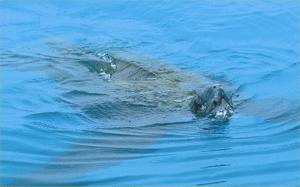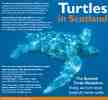 | Caithness.Org | Community | Business | Entertainment | Caithness... | Tourist Info | Site Map |
• Advertising • Chat Room • Contact Us • Kids Links • Links • Messageboard • News - Local & Scottish • News - UK & News Links • About / Contact Us • Submissions |
• Bookshop • Business Index & News • Jobs • Property For Sale • Property For Rent • Shop • Sutherland Business Index |
• Fishing • Fun Stuff • George, The Saga • Horses • Local Galas • Music • Pub Guide • Sport Index • What's On In Caithness |
• General Information • B & Bs • Backpackers • Caravan & Camping • Ferries • Getting Here • Holiday Letting • Hotels • Orkney • Pentland Firth • Sutherland • Taxis |
| N E W S F E E D S >>> |
Caithness News Bulletins July 2005
|
TURTLE ROADSHOW URGES SCOTTISH SEA-USERS TO LOOK OUT FOR LEATHERBACKS
The Roadshow is funded by Scottish Natural Heritage (SNH) and is part of a national Action Plan for the conservation of turtles in UK waters. Caithness Roadshow presentations will be held as follows: Tuesday, 12th July - Lybster,
Portland Arms Hotel, 7.30pm "Little is known about the ecology of leatherback turtles while they visit Scottish waters, but through the Roadshow, we are hoping that more people will become aware of these exotic visitors," said Dr Martin Gaywood, Species Officer at SNH, "If we receive more reports of turtles spotted in Scotland's seas, then we will begin to find out more about them and have a better understanding of their conservation needs." The talks will stress the importance of reporting leatherback encounters and MCS will hand out free information posters and the UK Turtle Code6, a code of conduct for sea-users including information about dealing with entangled turtles and reporting sightings and strandings. MCS is also investigating why leatherback turtles occasionally entangle and drown in fishing gear, especially the buoy-marker ropes of static gear such as crab pots, creels and tangle nets. "Each year around the UK coast, a few leatherbacks become entangled in ropes associated with bottom-set static gear, but we don't know why", said Peter Richardson, MCS Species Policy Officer "Through the Roadshow we are hoping to meet and interview fishermen who have accidentally caught a turtle in their fishing gear. Their stories will be invaluable in helping us understand why this happens and will help us design guidelines to mitigate against future fatal turtle entanglements." While the reasons the Port William leatherback died are unclear at present, leatherback turtles face a variety of threats throughout their range, including habitat destruction, hunting and egg harvest at their tropical nesting beaches, as well as accidental entanglement and drowning in fishing gear at sea and ingestion of marine litter such as plastic bags and balloons. "Leatherbacks feed on jellyfish, but unfortunately they appear to confuse plastic bags and other floating litter with their prey". Autopsies done on leatherbacks found dead on Scottish shores have revealed horrendous amounts of rubbish blocking their guts, which have led to the animals starving to death,' said Peter Richardson, 'It's the UK's responsibility to protect these critically endangered animals while they are visiting our seas, and that is why MCS is not only campaigning for cleaner seas fit for life, but is also working towards preventing future turtle entanglements in fishing gear.' For further information about the Scottish Turtle Roadshow schedule and copies of MCS materials, or if you have ever accidentally entangled a turtle, please contact Peter Richardson, MCS Species Policy Officer at peter@mcsuk.org or call the MCS office on 01989 566017.
For more information on identifying turtles or to report a
turtle sighting online visit - The Scottish Turtle Roadshow is funded by Scottish Natural Heritage (SNH) as part of the national Action plan for turtles. |













